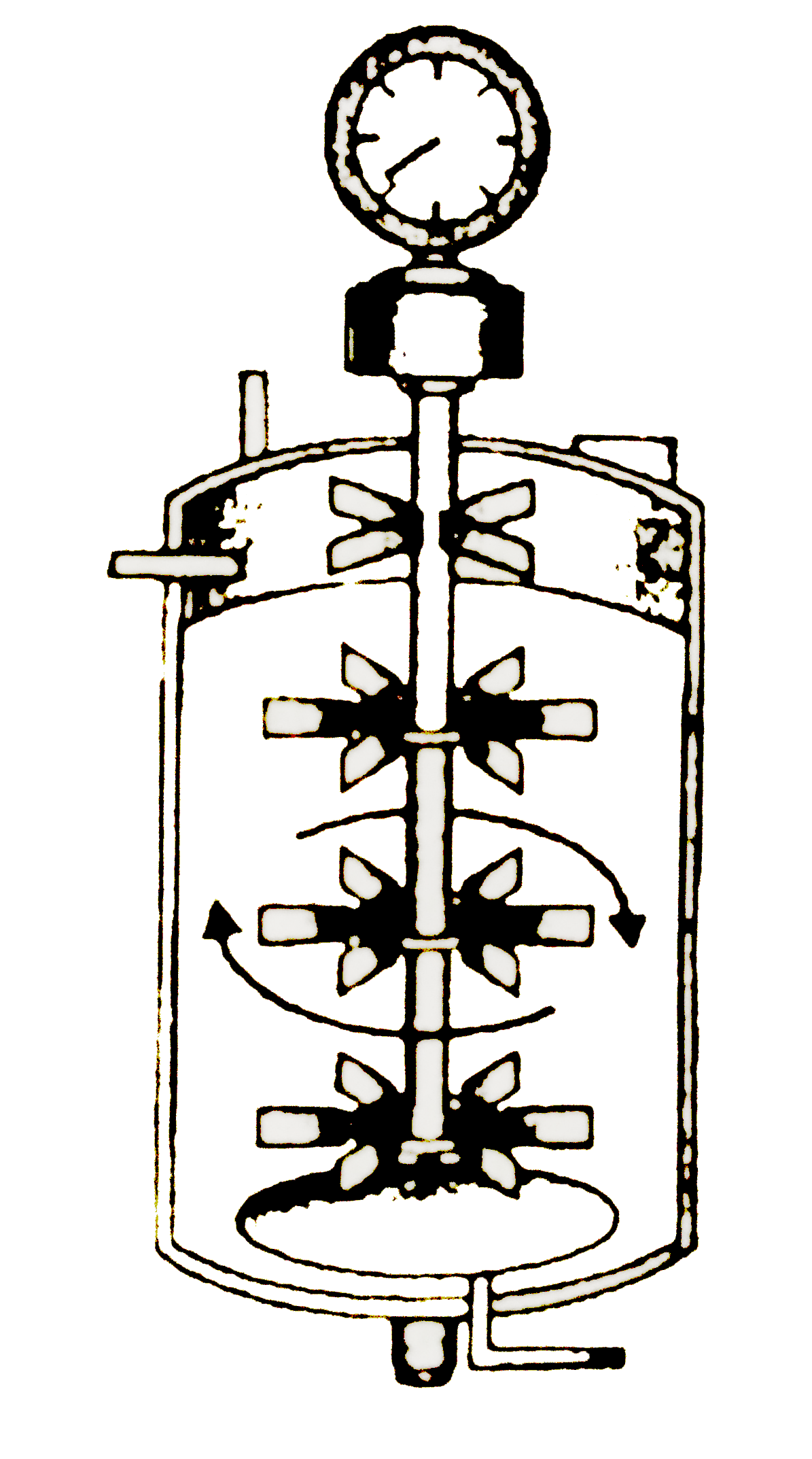Write a note on bioreactors.
Step-by-Step Solution on Bioreactors
1. Definition of Bioreactors:
- Bioreactors are specialized vessels designed to provide a controlled environment for the growth of microorganisms, plant cells, or animal cells. They facilitate the conversion of raw materials into specific products through biological processes.
2. Functionality:
- The primary function of bioreactors is to convert raw materials into desired products using biological agents such as microbes, plant cells, animal cells, or their enzymes. This process is essential in various biotechnological applications, including fermentation and cell culture.
3. Types of Bioreactors:
- The most common type of bioreactor is the stirred tank bioreactor. This can be further classified into:
- Simple Stirred Tank Bioreactor: A basic design that uses mechanical stirring to mix the contents.
- Sparged Stirred Tank Reactor: This type incorporates gas sparging, where gas (usually oxygen) is introduced into the liquid to enhance microbial growth and product formation.
4. Uses of Bioreactors:
- Bioreactors are widely used for the large-scale production of microorganisms, which can be applied in various industries such as pharmaceuticals, food, and biofuels.
- They also have several systems integrated for better performance, including:
- Oxygen Delivery System: Ensures adequate oxygen supply for aerobic organisms.
- Foam Control System: Manages foam formation during fermentation, which can affect the process.
- Temperature Control System: Maintains optimal temperature for biological reactions.
- pH Control System: Regulates the acidity or alkalinity of the medium to ensure optimal growth conditions.
5. Importance of Bioreactors:
- Bioreactors play a crucial role in biotechnology, enabling the efficient production of a wide range of biological products. Their design and operation are vital for maximizing yield and ensuring product quality.
- Bioreactors are specialized vessels designed to provide a controlled environment for the growth of microorganisms, plant cells, or animal cells. They facilitate the conversion of raw materials into specific products through biological processes.
- The primary function of bioreactors is to convert raw materials into desired products using biological agents such as microbes, plant cells, animal cells, or their enzymes. This process is essential in various biotechnological applications, including fermentation and cell culture.
- The most common type of bioreactor is the stirred tank bioreactor. This can be further classified into:
- Simple Stirred Tank Bioreactor: A basic design that uses mechanical stirring to mix the contents.
- Sparged Stirred Tank Reactor: This type incorporates gas sparging, where gas (usually oxygen) is introduced into the liquid to enhance microbial growth and product formation.
- Bioreactors are widely used for the large-scale production of microorganisms, which can be applied in various industries such as pharmaceuticals, food, and biofuels.
- They also have several systems integrated for better performance, including:
- Oxygen Delivery System: Ensures adequate oxygen supply for aerobic organisms.
- Foam Control System: Manages foam formation during fermentation, which can affect the process.
- Temperature Control System: Maintains optimal temperature for biological reactions.
- pH Control System: Regulates the acidity or alkalinity of the medium to ensure optimal growth conditions.
- Bioreactors play a crucial role in biotechnology, enabling the efficient production of a wide range of biological products. Their design and operation are vital for maximizing yield and ensuring product quality.
Topper's Solved these Questions
- BIOTECHNOLOGY : PRINCIPLES AND PROCESSESBOOK - ICSECHAPTER - BIOTECHNOLOGY : PRINCIPLES AND PROCESSESEXERCISE - PERVIOUS YEARS. BOARD PAPER QUESTIONS (Very Short Answer Type Questions )
4 Videos
- BIOTECHNOLOGY : PRINCIPLES AND PROCESSESBOOK - ICSECHAPTER - BIOTECHNOLOGY : PRINCIPLES AND PROCESSESEXERCISE - PERVIOUS YEARS. BOARD PAPER QUESTIONS ( Short Answer Type-I Questions )
1 Video
- BIOTECHNOLOGY : PRINCIPLES AND PROCESSESBOOK - ICSECHAPTER - BIOTECHNOLOGY : PRINCIPLES AND PROCESSESEXERCISE - PRACTICE QUESTIONS (SHORT ANSWER TYPE-II QUESTIONS)
11 Videos
- BIOLOGY-2016BOOK - ICSECHAPTER - BIOLOGY-2016EXERCISE - PART-II ( SECTION-C)
9 Videos
- BIOTECHNOLOGY AND ITS APPLICATIONS BOOK - ICSECHAPTER - BIOTECHNOLOGY AND ITS APPLICATIONS EXERCISE - COMPETITION CORNER (OBJECTIVE TYPE QUESTIONS (ASSERTION AND REASON TYPE QUESTIONS))
9 Videos
Similar Questions
A bioreactor is
View SolutionA bioreactor is a :
View SolutionBioreactors have
View SolutionWrite a note on apiculture.
View SolutionWrite a note on biotic community
View SolutionWrite a short note on bioherbicides.
View SolutionWrite a note on modifications of underground stems.
View SolutionWrite a short note on bacterial nutrition.
View SolutionName the type of bioreactor shown. Write the purpose for which it is used.

View SolutionName two commonly used bioreactors. State the importance of using a bioreactor.
View Solution